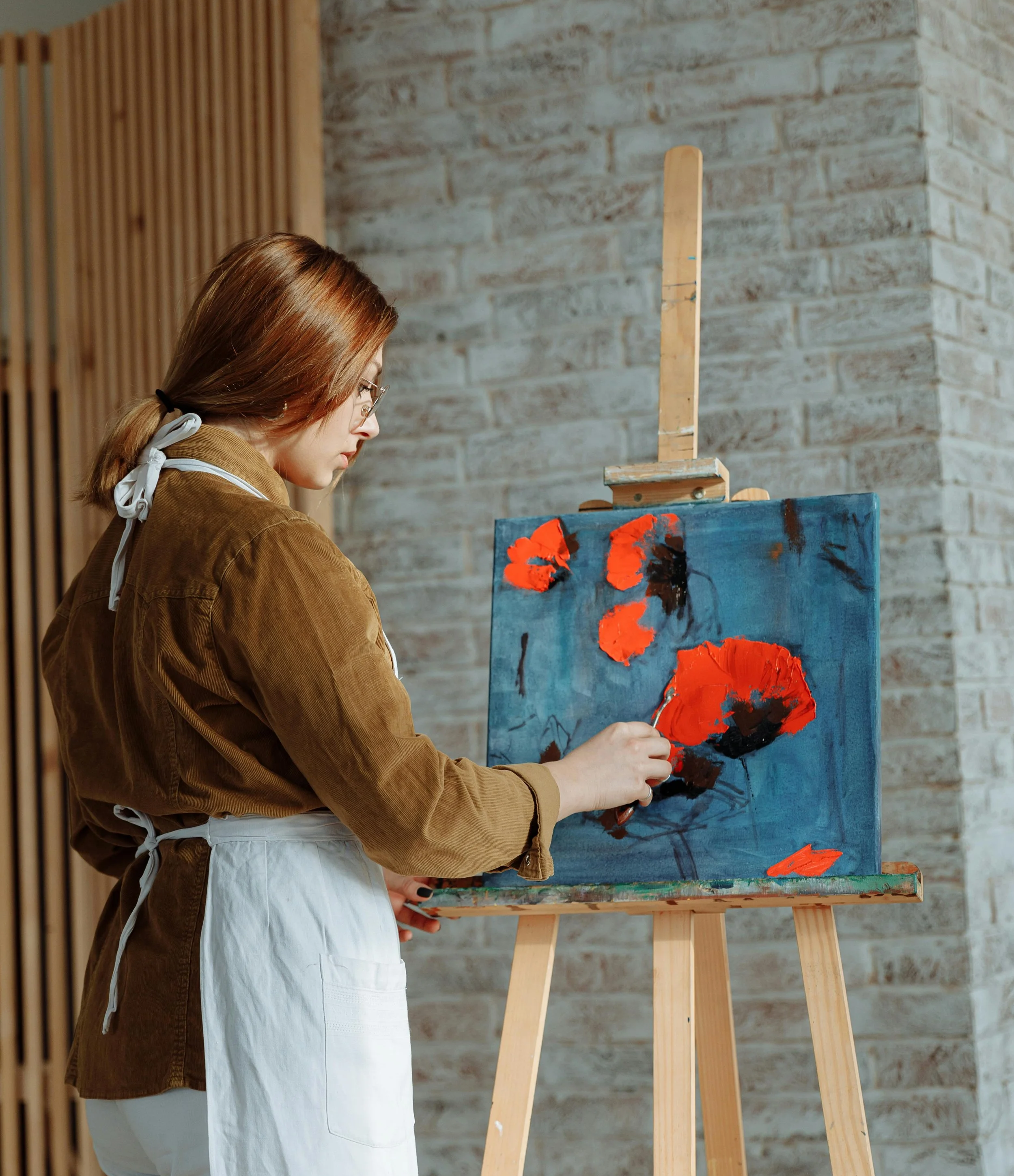When Words Aren’t Enough: Using Art Therapy to Process Trauma and Emotion
For many people, especially those navigating the complex landscape of trauma, emotions, and identity, talking about what they're going through can feel overwhelming—or even impossible. Words can fail us. They can feel too big, too painful, or simply not enough to express what’s going on inside. That’s where art therapy comes in.
At Blue Square Counseling, with offices in Billerica and Lexington, Massachusetts, and through telehealth across the state, we offer art therapy as a powerful alternative or complement to traditional talk therapy. It’s particularly effective for people processing trauma or exploring identity, including many LGBTQ+ individuals who have experienced invalidation, discrimination, or internal conflict.
What Is Art Therapy?
Art therapy is a therapeutic approach that uses creative expression—drawing, painting, sculpting, collage, and more—as a way to explore thoughts, emotions, and experiences. It’s not about artistic skill. It’s about using art as a tool for communication, insight, and healing.
An art therapist is a licensed mental health professional trained to guide clients through the creative process, helping them process difficult emotions, reduce anxiety, and make sense of their experiences in a safe, supportive environment.
Why Art Therapy Helps When Talking Feels Too Hard
Trauma—especially when experienced in childhood or involving shame or identity—can get stored in the body and the subconscious mind. Sometimes, the brain’s natural defenses make it difficult to talk about these experiences directly. Even finding the right words can feel impossible.
Art offers another way in.
Through visual expression, clients can:
Externalize and process painful memories without re-traumatizing themselves
Represent emotions they can’t name
Reclaim a sense of control and agency
Build self-compassion and insight
Access and express deeper layers of experience stored beyond verbal memory
How Art Therapy Supports LGBTQ+ Clients
Many LGBTQ+ individuals carry emotional pain related to family rejection, internalized stigma, microaggressions, or identity confusion. Art therapy can create a nonverbal, affirming space to explore these layered experiences with a therapist who respects and understands the impact of identity on mental health.
Whether someone is grappling with coming out, exploring gender identity, recovering from trauma, or dealing with anxiety or depression, art therapy can help make sense of it all—on their terms, in their time.
Common Goals in Art Therapy
Some of the most common goals clients work toward in art therapy include:
Processing past trauma or grief
Navigating relationship challenges
Reducing anxiety, depression, or overwhelm
Exploring identity and self-worth
Building emotional regulation skills
Cultivating resilience and hope
In each case, art becomes a bridge—a way to connect the inner world to the outer one, to move what’s inside into the light.
What to Expect in an Art Therapy Session
Sessions are always tailored to the client’s needs. You don’t need to be “creative” or “good at art.” Your therapist may offer materials or prompts, but you’ll never be judged on what you create. You can work with paint, pencils, markers, collage, clay—whatever feels right.
The session may involve making art together, talking about what you created, or simply using the art process to reflect and release emotion.
Art therapy can be done in person or virtually. At Blue Square Counseling, we provide safe, LGBTQ-affirming care in Billerica and Lexington or from the comfort of your home through telehealth in Massachusetts.
Is Art Therapy Right for You?
If traditional talk therapy feels intimidating, limiting, or like it’s just not getting to the root of what you’re going through, art therapy may be a helpful path forward. It’s especially powerful for:
Survivors of trauma
People who feel “stuck” in therapy
LGBTQ+ clients exploring identity or facing discrimination
College students coping with academic pressure or transition
Individuals who process emotions through imagery or sensation
You don’t have to explain everything. You don’t have to put it all into words. You just have to show up—and let the process meet you where you are.
Learn More or Book a Session
If you're curious about art therapy in Massachusetts, we invite you to reach out. Our compassionate therapists are here to help you feel safe, seen, and supported—no matter where you are in your healing journey.
Visit our Art Therapy Services Page or contact us to schedule a free consultation.



